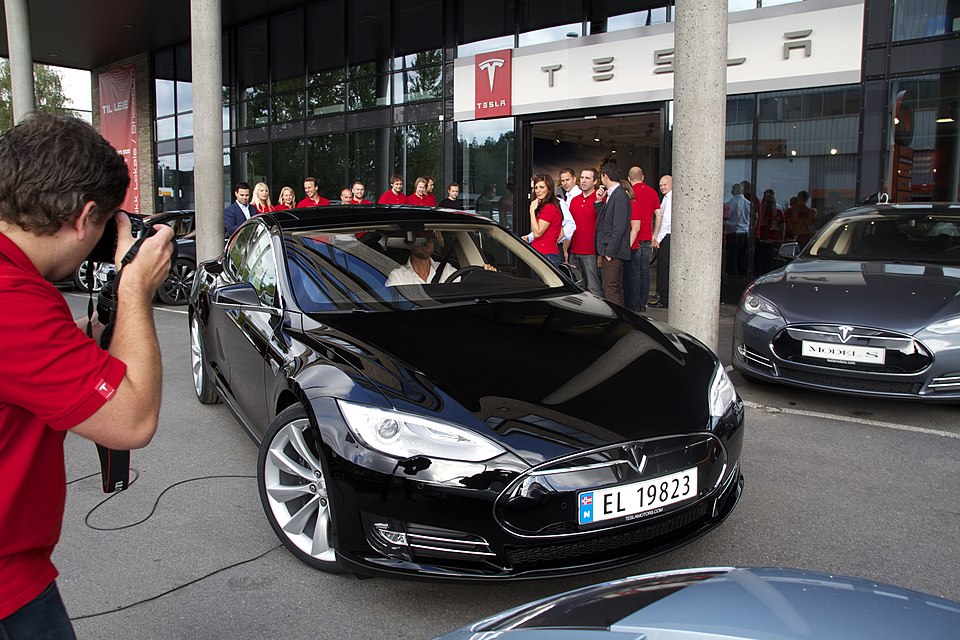
Tesla's new car registrations across several key European markets declined sharply in July, despite efforts to rejuvenate interest with an updated version of its flagship Model Y. The electric
vehicle (EV) maker is grappling with growing backlash over CEO Elon Musk's political statements, regulatory hurdles, and intensifying competition from low-cost EV manufacturers, particularly from China.
Facing an aging product lineup, Tesla is attempting to bolster its position by introducing a refreshed Model Y and preparing to manufacture a new, more affordable model. However, production of the latter is not expected to ramp up until the next quarter, later than originally planned.
Official data reveals that Tesla registrations—an important indicator of sales—fell significantly year-on-year in July:
- Sweden: Down 86% to 163 cars
- Denmark: Down 52% to 336 cars
- France: Down 27% to 1,307 cars
- Netherlands: Down 62% to 443 cars
This marks the seventh consecutive month of declining registrations in all four countries. Overall, Tesla’s sales in Europe dropped by more than one-third during the first half of 2025.
However, there were exceptions. Norway and Spain defied the downward trend, with Tesla registrations rising by 83% (to 838 cars) and 27% (to 702 cars) respectively. Spain, in particular, saw a 155% surge in overall electrified vehicle sales, which includes battery electric and plug-in hybrid models. Chinese EV giant BYD notably sold 2,158 cars in Spain in July, nearly eight times more than a year earlier.
Looking ahead, Tesla faces a challenging few months. With no new entry-level models expected until the final quarter of the year and the impending expiration of the $7,500 U.S. EV tax credit, Musk has warned of "a few rough quarters" for the company.
Regulatory barriers in Europe are also hampering Tesla's ambitions. Musk pointed out that stringent rules surrounding automated driving features make it difficult to market the Model Y in some countries. The vehicle's optional supervised self-driving capability is considered a key selling point in markets like the U.S., where regulations are less restrictive.
"We believe our European sales will see a significant boost once we can offer customers the same driving experience they get in the U.S.," Musk told analysts.
Tesla began offering the long-range, four-wheel-drive version of the revamped Model Y in Europe in March 2025, followed by two rear-wheel-drive variants in May. Despite these launches, Model Y registrations in Sweden and Denmark dropped by 88% and 49% respectively in July. Conversely, Norway experienced a more than fourfold increase, with 715 Model Y units registered that month.
Norway, where nearly all new vehicles sold are fully electric and Tesla has dominated sales since 2021, has seen a sharp rise in demand since May, thanks in part to the introduction of 0% interest loans in select Nordic countries to stimulate purchases.
Meanwhile, in the U.S., Tesla launched a pilot robotaxi service in Austin, Texas, in June, using a fleet of Model Y SUVs equipped with autonomous driving software. However, broader deployment of these self-driving features across other U.S. regions remains stalled, pending regulatory approval.
In contrast to Tesla's struggles, overall car sales in July rose in several European markets:
- Denmark: +20%
- Sweden: +6%
- Norway: +48%
- Spain: +17%
- Netherlands: +9%
France, however, saw an 8% decline in total vehicle sales.
Other European countries are expected to release their July car sales data later on Friday.
The broader European auto industry is also feeling the strain. Major automakers—including Volkswagen, Mercedes-Benz, Stellantis, Renault, and BMW—have reported weaker-than-expected second-quarter results, citing challenges such as U.S. import tariffs and cooling consumer demand. Photo by Norsk Elbilforening, Wikimedia commons.



































